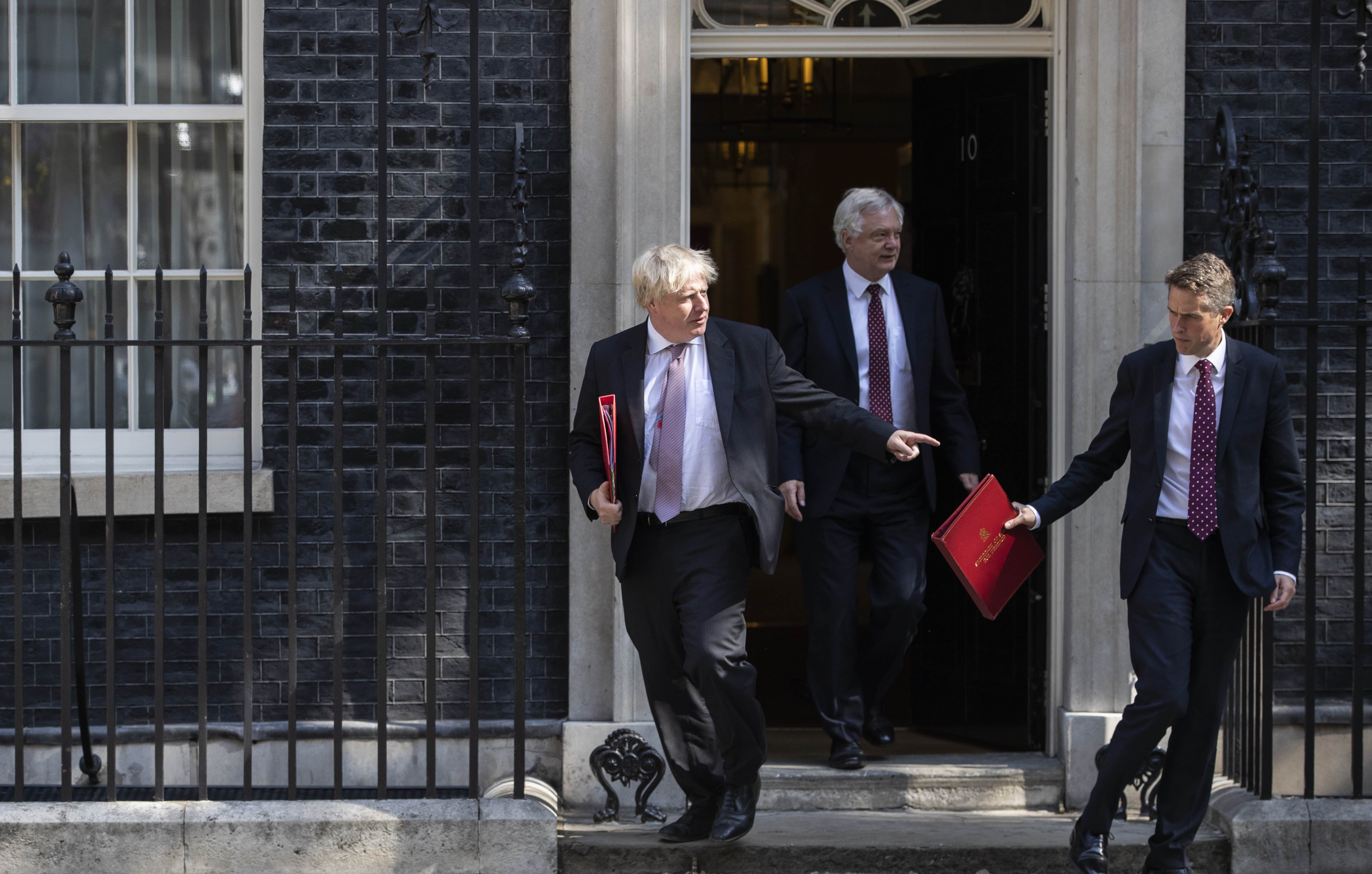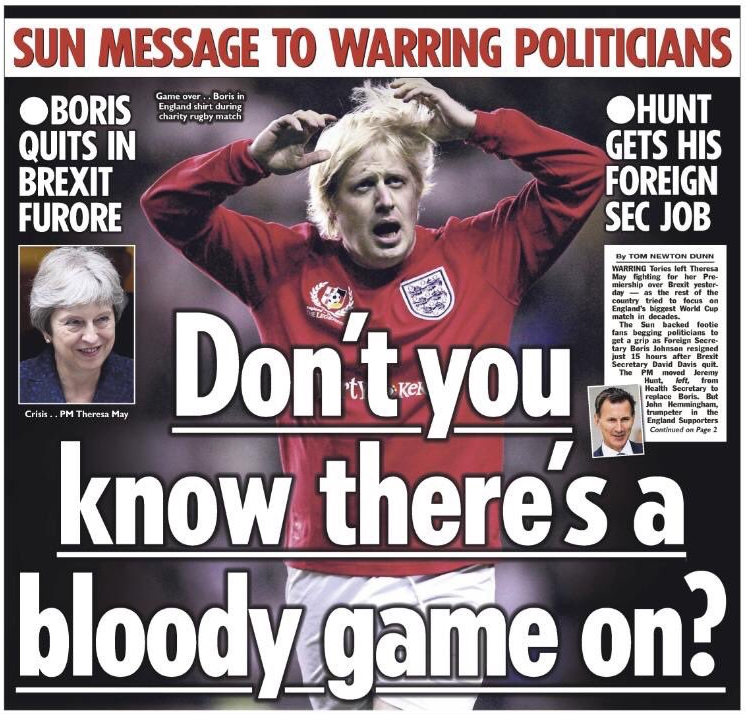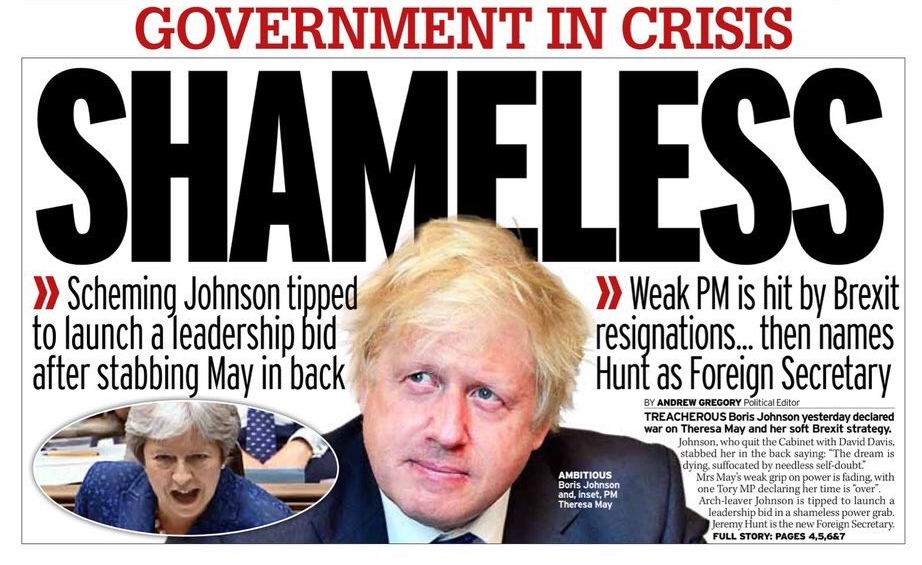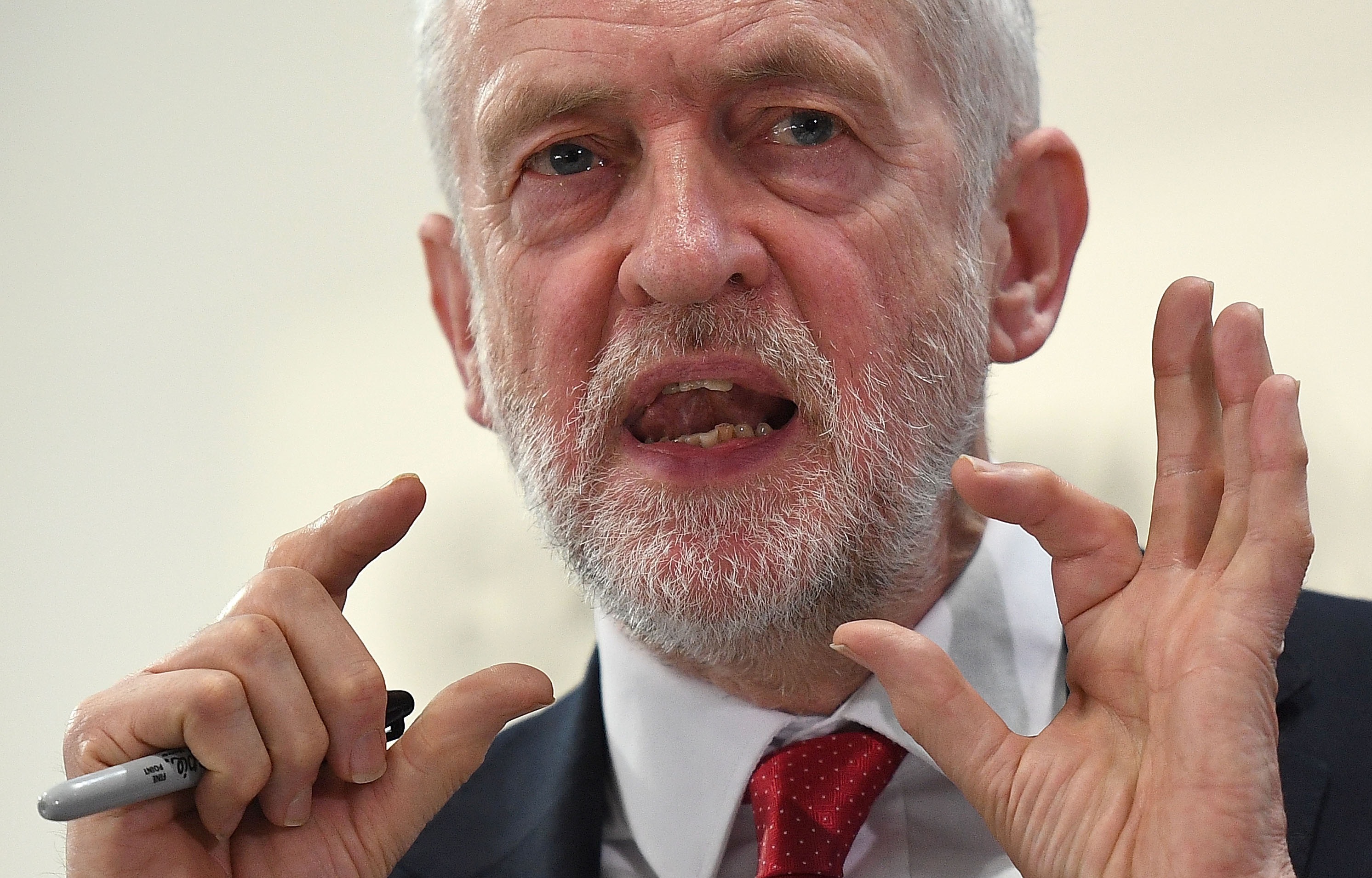
Politics & Society
Brexit: The challenge for Theresa May

Key resignations over British Prime Minister Theresa May’s approach to Brexit has plunged the government into chaos. But what does it mean for Brexit?
Published 11 July 2018
The British Prime Minister, Theresa May, has reshuffled her cabinet after the resignations of key government ministers in protest at the Government’s plans for a close trading relationship with the European Union.
Brexit Secretary David Davis quit Cabinet late on Sunday, saying he couldn’t support the Prime Minister’s plans for close trade and regulatory ties with the European Union after the UK leaves next year.
I am proud to have served as Foreign Secretary. It is with sadness that I step down: here is my letter explaining why. pic.twitter.com/NZXzUZCjdF
— Boris Johnson (@BorisJohnson) July 9, 2018
Foreign Secretary Boris Johnson – who became the face of the Vote Leave campaign – followed hours later with his resignation from cabinet, saying Theresa May’s negotiating plan would see Britain turned into a “colony” and warned that the Brexit “dream was dying, suffocated by needless self doubt”.
And since then, two more resignations - Ben Bradley and Maria Caulfield have left their roles as Conservative Party vice-chairs.
Labour leader Jeremy Corbyn says these resignations show that Conservative MPs are abandoning a “sinking ship”.
So, what does it all mean for Brexit? And what are the implications for the British Government?

Politics & Society
Brexit: The challenge for Theresa May
We asked Professor Philomena Murray from the University of Melbourne’s School of Social and Political Science some key questions about what’s likely to come next.
The negotiations have been going for over a year and have been troubled from the start. There has been a considerable amount of criticism of Brexit Secretary David Davis in particular – a photo of Mr Davis last year sitting down at the negotiating table with no papers, while his EU counterparts had a stack of in front of them, was taken as emblematic of an approach that was not serious.
But the key concern for some UK observers now is whether the EU will take advantage of the resignations.
Some are worrying the EU will be emboldened to take a tougher stance on the terms for Brexit, but I don’t think that sort of brinkmanship features in EU thinking.
The EU leadership wishes Brexit wasn’t happening, but given that it is, the EU’s primary concerns is to secure the rights of EU citizens in the UK and ensure that any deal doesn’t privilege the UK over other non-EU member states. It also wants to retain the UK as a key ally and partner in defence matters and intelligence co-operation.

For its part, the UK has placed a lot of focus on shedding the obligations that come with being an EU member, but what often gets forgotten are the rights that will be given up once it does leave. These rights include free trade access that the UK government is now seeking to somehow preserve in the Chequers document that Theresa May had hoped would be a sound compromise.
Neither the UK Government nor the opposition Labour Party is strongly in favour of remaining in the EU, so in terms of the major parties, the choice for the country is still whether it negotiates a soft Brexit or a hard Brexit.

Arts & Culture
Brexit: Over and out
That being said, the idea of remaining is being increasingly discussed throughout the UK. Last month an estimated 100,000 people demonstrated in London demanding another vote on Brexit. Some 48 per cent of the country had voted in favour of remaining, and there were majorities in favour of staying in the EU in Northern Ireland and Scotland.
In the case of Northern Ireland, the stakes are particularly high for the people living there given they share a border with the EU member state, the Republic of Ireland. How Brexit will affect these people’s lives and prosperity is a real issue, as are concerns about the implications for the Good Friday peace agreement between Republicans and Unionists and the Irish and British governments in Northern Ireland.
But at this stage it would need a change of government for Brexit to be rethought – by a new pro-remain government – and that looks unlikely. The new foreign secretary Jeremy Hunt was at the time of the referendum in favour of remaining, but so too was Theresa May.
If anything, a change of government is more likely to bring to power a hard-Brexiter like Boris Johnson.

One of the concerns among hard-Brexiters is that the Cabinet agreement Theresa May has secured envisages some harmonisation between UK and EU laws as well as a “common rule book” for trade. There is an ongoing joke doing the rounds that the UK Department for Exiting the EU is being called the Department for Copying the EU.
But having a “common rule book” for trade means the UK would, if the EU were to agree, still be partly tied to the EU Single Market and that is contrary to the hard-Brexit ideology that takes only a very narrow perspective on sovereignty – you either have sovereignty or you don’t. In contrast the EU member states take a more nuanced view in which sovereignty is shared on many policy issues.

Politics & Society
Is Europe heading for divorce?
It is an ideological problem within the UK government.
It does leave Theresa May in a weakened position politically.
While she now has a more united Cabinet, it is a depleted Cabinet. Many of the powerful figures within the party are now on the outside looking in, with a very critical eye, rather than on the inside looking out.
The backbench is a dangerous place to have some of your most powerful and influential party members whom you don’t trust. And in the case of Boris Johnston it puts them in a position from which to challenge the Prime Minister. I think it is a real problem.
The Labour Party are just as split on Brexit as the Tories.

The difference is, simply put, whereas the Tories are more split between soft-Brexiters and hard-Brexiters, in Labour the split is between Brexiters and those who wish to remain.
There is significant support for remaining among Labour supporters, but the parliamentary party mostly backs Brexit. Jeremy Corbyn himself harks back to that 1970s and 80s generation of Labour politicians when the party officially backed leaving the then European Community. I don’t see him changing his mind now and coming out in favour of remaining in the EU.
The question then is whether Mr Corbyn could eventually come under substantial pressure to shift his position – that remains to be seen. Meanwhile, the Conservatives remain in power, the next UK election isn’t due until after the legislated March 29, 2019 deadline for Brexit, and there is huge uncertainty about whether a deal to leave the EU will be in place by then.
If that deadline passes, all bets may well be off.
Banner: Boris Johnson, David Davis and Gavin Williams leave Downing Street/Getty Images